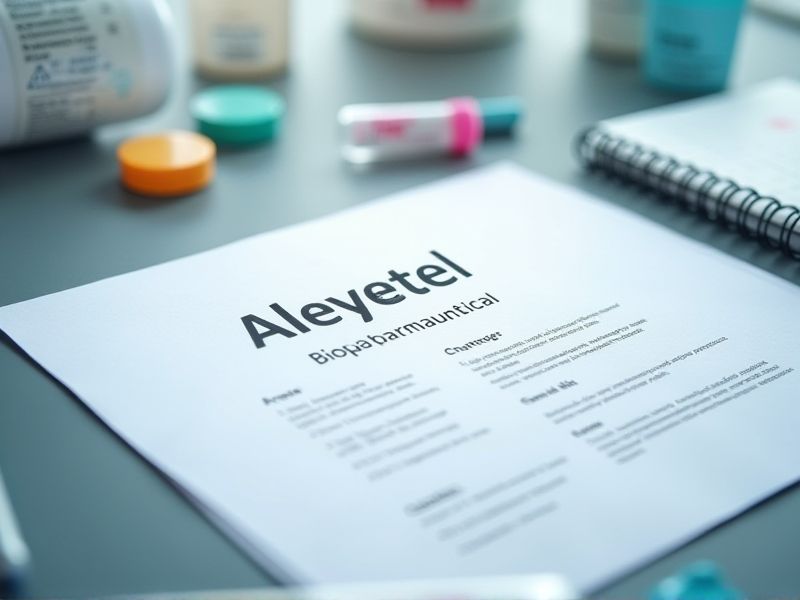
Biopharmaceutical manufacturing specialists play a critical role in ensuring the production of safe and effective medicines. Certifications validate their knowledge in regulatory compliance, quality control, and Good Manufacturing Practices, which are essential in this highly regulated industry. The complexity and specificity of biopharmaceutical processes demand a deep understanding of technical and safety standards. Key certifications for professionals in this field include those in process validation, quality assurance, and regulatory affairs.
ISPE Certified Pharmaceutical Industry Professional (CPIP)
The CPIP certification validates a specialist's proficiency in critical industry standards and ensures they are up-to-date with regulatory requirements. Achieving this certification enhances a biopharmaceutical professional's ability to implement best practices in manufacturing processes. It serves as a benchmark for assessing expertise in areas such as quality assurance and project management. Employers recognize CPIP-certified individuals as capable of optimizing production efficiency and maintaining compliance.
Certified Pharmaceutical Good Manufacturing Practices (GMP) Specialist
The role of a Certified Pharmaceutical GMP Specialist is crucial in ensuring that biopharmaceutical products meet rigorous quality and safety standards. Their expertise helps minimize contamination risks, which directly impacts patient safety and product efficacy. Compliance with GMP regulations is legally mandated, and specialists ensure manufacturing processes align with these laws to avoid costly penalties. Their knowledge in process optimization leads to more efficient production, reducing waste and increasing overall productivity in biopharmaceutical manufacturing.
ASQ Certified Quality Auditor (CQA)
The ASQ Certified Quality Auditor (CQA) credential is crucial for biopharmaceutical manufacturing specialists because it ensures thorough understanding of compliance with industry regulations such as Good Manufacturing Practices (GMP). This knowledge directly impacts the quality and safety of the biopharmaceutical products being developed, minimizing risks of errors or contamination. Having CQA certification signals expertise in conducting audits, which enhances a team's efficiency in maintaining high standards throughout manufacturing processes. Employing professionals with this certification reduces the likelihood of regulatory non-compliance, which can result in costly fines and damage to company reputation.
ASQ Certified Quality Engineer (CQE)
The biopharmaceutical manufacturing industry demands stringent quality standards to ensure product efficacy and safety, making the ASQ Certified Quality Engineer (CQE) essential. A CQE brings in-depth knowledge of quality control and process improvement, crucial for maintaining compliance with regulatory bodies like the FDA. This certification enhances the ability to identify and mitigate risks in production processes, leading to reduced errors and waste. Employing CQEs can result in cost-effective operations and higher product consistency, establishing trust with consumers and stakeholders.
Six Sigma Green Belt Certification
Six Sigma Green Belt Certification enhances a biopharmaceutical manufacturing specialist's ability to streamline processes, reducing waste and improving efficiency. This certification equips specialists with statistical tools to tackle process variations, leading to higher product quality and regulatory compliance. Trained professionals can implement data-driven decision-making, minimizing errors and operational costs. Companies value these skills, as they directly contribute to increased profitability and competitive advantage in the biopharmaceutical industry.
Regulatory Affairs Certification (RAC)
The Regulatory Affairs Certification (RAC) is crucial for biopharmaceutical manufacturing specialists because it ensures they understand and comply with complex global regulatory standards. Holding an RAC demonstrates proficiency in navigating and meeting the stringent regulations that govern drug development and manufacturing. This certification helps ensure products are safe and effective, reducing the risk of costly compliance failures or recalls. Strengthened regulatory knowledge through RAC enhances a specialist's role in maintaining product quality and facilitating smooth market entry.
GMP Compliance Certification
GMP Compliance Certification is essential for biopharmaceutical manufacturing specialists because it ensures that products meet safety and quality standards, reducing the risk of contamination and ensuring patient safety. Regulatory bodies, such as the FDA, often require GMP compliance for market approval, so certification facilitates smoother regulatory submissions. Adhering to GMP guidelines fosters a culture of consistent practices within the manufacturing process, leading to more reliable product outputs. Certification also enhances the specialist's credibility and employability in a highly regulated industry.
Certified Lean Six Sigma Professional
Implementing Lean Six Sigma methodologies in biopharmaceutical manufacturing helps reduce process variability, thereby enhancing product quality and ensuring regulatory compliance. Certified Lean Six Sigma professionals possess the skills to identify inefficiencies and reduce waste, which can lead to significant cost savings in highly regulated industries. By optimizing manufacturing processes, these professionals foster accelerated timelines for product development, directly impacting a company's ability to bring new therapies to market swiftly. In-depth data analysis skills inherent in Lean Six Sigma help in troubleshooting complex processes, resulting in increased operational reliability and patient safety.
Certified Process Validation Specialist
The complexity of biopharmaceutical manufacturing requires stringent protocols, and a Certified Process Validation Specialist ensures these processes meet regulatory standards. Their expertise helps in identifying and mitigating risks, thereby safeguarding product quality and patient safety. Proper validation of processes enhances production efficiency, reducing batch failures and financial losses. Regulatory agencies often demand validated processes, making their role integral in achieving compliance and market approval.
Project Management Professional (PMP) Certification
Biopharmaceutical manufacturing involves complex processes and stringent regulations, and a PMP certification equips specialists with essential project management skills to navigate these challenges efficiently. As time-to-market is crucial in this industry, PMP certification helps streamline project timelines and optimize resource allocation, leading to faster product development. The certification enhances risk management abilities, crucial for minimizing production disruptions and ensuring compliance with pharmaceutical regulations. Recognized globally, PMP certification can improve a specialist's career opportunities and credibility within the biopharmaceutical industry.
Summary
By obtaining certifications, you enhance your expertise and credibility in biopharmaceutical manufacturing. This often leads to increased job opportunities and potentially higher salaries. Employers may view you as more valuable, leading to greater responsibility and career advancement. Your skills in ensuring quality and regulatory compliance are recognized, which can improve production efficiency and product safety.
